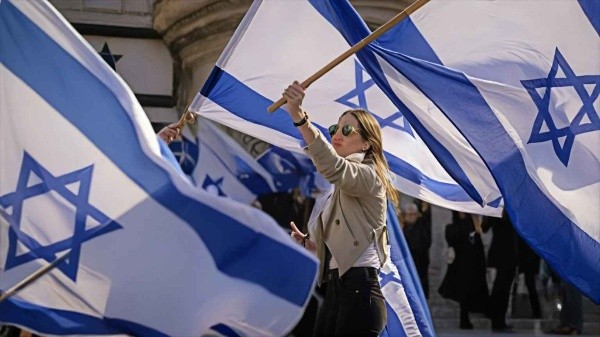The Death of Hamas Leader Yahya Sinwar: What We Know So Far
Israel and the US claim intelligence provided Sinwar’s whereabouts, but this is doubtful.
Loading...

Most citizens of this Middle Eastern country favor a military solution to the conflict with Hezbollah, and some even hope to “resettle Lebanon’s south”
Rising Tensions and Military Actions
Israel has intensified its military operations against Hezbollah, a Shiite political and paramilitary group in Lebanon linked to Iran. Since Monday, the Israeli Defense Forces (IDF) have launched over 800 strikes targeting Hezbollah positions in Lebanon. This escalation follows a precision strike in Beirut's Dahiya neighborhood, which resulted in the death of Ibrahim Aqil, the head of Hezbollah's elite Radwan Force, along with other senior commanders. Additionally, explosives hidden in communication devices detonated, causing significant casualties among Hezbollah operatives. Although Israel has not officially claimed responsibility, Lebanon attributes these attacks to Israeli actions, prompting Hezbollah to vow retaliation.
Public Opinion and Preparedness for War
The threat of retaliation has heightened tensions in Israel, particularly in communities near the northern border. Residents have been advised to stay close to bomb shelters, and the IDF's Chief of Staff, Herzi Halevy, has approved several action plans in anticipation of a potential full-scale war. A recent poll by Channel 14, associated with Israel's right-wing, indicates that 71% of Israelis support a military operation in Lebanon, with only 18% opposing it. Another survey suggests that 65% of Israelis believe their country would emerge victorious in such a conflict.
Advocacy for Military Action
Yisrael Keller, a representative of the group "Fighting for the North," is among those advocating for a military offensive against Hezbollah. Keller argues that only a war can change the current situation, where Israelis have mere seconds to seek shelter from Hezbollah's rocket attacks. His organization was formed after Israel's ground incursion into Gaza, highlighting the ongoing threat from Hezbollah's rocket fire, which has led to the evacuation of 62,000 Israelis from areas near the northern border.
Military Strategy and Challenges
Israel has consistently retaliated against Hezbollah's attacks, targeting launch sites and military infrastructure in southern Lebanon and Beirut. However, Keller and his group believe these measures are insufficient. They argue for a more aggressive approach, pushing Hezbollah beyond the Litani River and disarming the group to eliminate its threat to Israel. Despite Hezbollah's formidable arsenal, including over 200,000 missiles and a well-equipped fighting force, Keller is confident in Israel's military capabilities, citing the need for political will to achieve victory.
Political and Strategic Considerations
Prime Minister Benjamin Netanyahu has faced criticism for allegedly allowing Hezbollah to amass weapons unchecked. While Keller does not position himself as a staunch critic of Netanyahu, he emphasizes the need for continued pressure on the government to pursue a decisive resolution to the conflict. This includes disarming Hezbollah and potentially establishing a buffer zone in southern Lebanon, managed by the Israeli military and possibly featuring Jewish settlements.
The Cost of Conflict
Despite warnings from some Israeli experts about the risks of a full-scale war with Lebanon, Keller and his supporters prioritize Israel's security over potential international isolation and economic repercussions. They believe that the financial resources and expertise of Israel's finance minister, Betzalel Smotrich, can navigate the country through the economic challenges of such a conflict. For them, the elimination of Hezbollah is a matter of survival, preventing future attacks similar to those experienced on October 7.
Historical Context
Israel and Lebanon have a history of conflict, having engaged in two wars. The First Lebanon War began in 1982 and ended in 1984, with Israeli forces withdrawing from southern Lebanon in 2000. The Second Lebanon War occurred in 2006 after Hezbollah killed ten Israeli soldiers. As tensions rise once again, the question remains whether Israel will pursue a military solution to its longstanding conflict with Hezbollah.
Editor
Israel and the US claim intelligence provided Sinwar’s whereabouts, but this is doubtful.
Tata, who passed away on Wednesday, was known for his humility and his expansive vision.
Israel says the major attacks that levelled multiple residential buildings in southern Beirut targeted Hezbollah’s ‘central command’.
